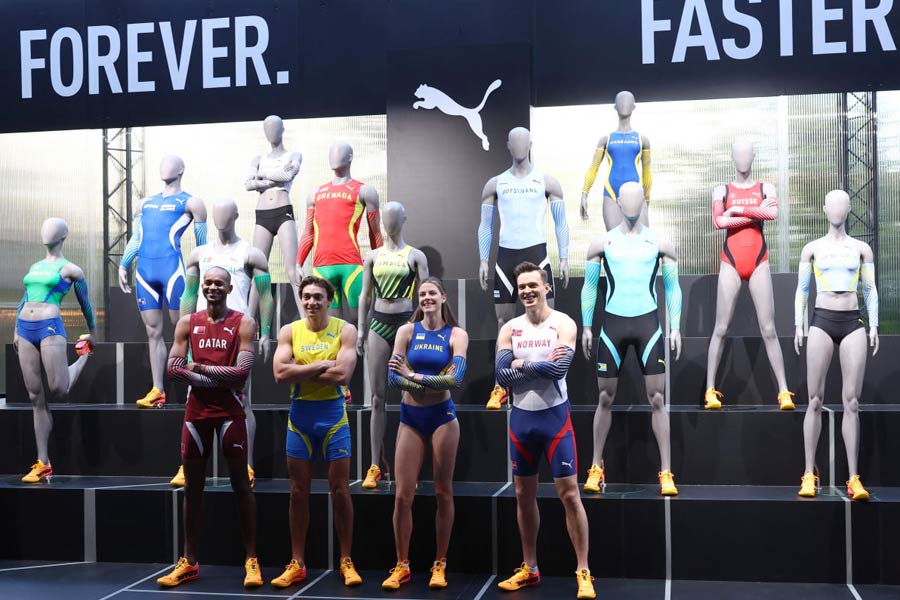German sportswear brand Puma is using this year's Olympic Games and its partnership with sprint champions Jamaica to focus on speed as it jostles with Adidas and Nike to carve out space in an increasingly competitive running and lifestyle market.
Puma CEO Arne Freundt aims to boost sales of "performance" products like running shoes and soccer cleats, and is revamping Puma's "Forever Faster" message in its first brand campaign in a decade on Wednesday in Paris, host of this year's Games.
As Puma tries to win over more everyday and serious runners, its sponsorship of Jamaica's Olympic team and some of the world's best sprinters like Shericka Jackson and Elaine Thompson-Herah helps to associate the brand with speed, said Geoff Lowery, analyst at Redburn in London.
"You're never going to sell very many running spikes, but in terms of properly iconic teams that credentialise you as a performance brand and associate you with some of the most exciting athletes, Puma have a super-strong relationship there," Lowery said.
Freundt visited Jamaica at the end of March, attending the country's top high school track and field meet for the first time to launch the Jamaican Olympic kit at the event seen as a testing ground for young athletic talent.
"We need to be very clear that Puma is about speed," Freundt, who has been in the top job just over a year, told Reuters in an interview ahead of the campaign launch. "That's something we need to strengthen further in the consumer mindset."
Like other sportswear retailers that sponsor Olympians and pour marketing money into the Games, the bet is that athletes breaking records in Puma gear will nudge spectators towards its whole range of products, creating a potential "halo effect" for everything from marathon shoes to everyday sneakers.
Brands like Puma, Adidas, and Nike will also be allowed to celebrate their Olympic athletes' medal wins on social media during the Games for the first time, as the International Olympic Committee (IOC) plans to relax rules governing online marketing in a "pilot project" with the World Federation of the Sporting Goods Industry.
"With the new IOC regulations we will be able to use that moment in a better way, to congratulate them also via social media, I think that's a win-win for both the Olympics as well as us," Freundt said.










